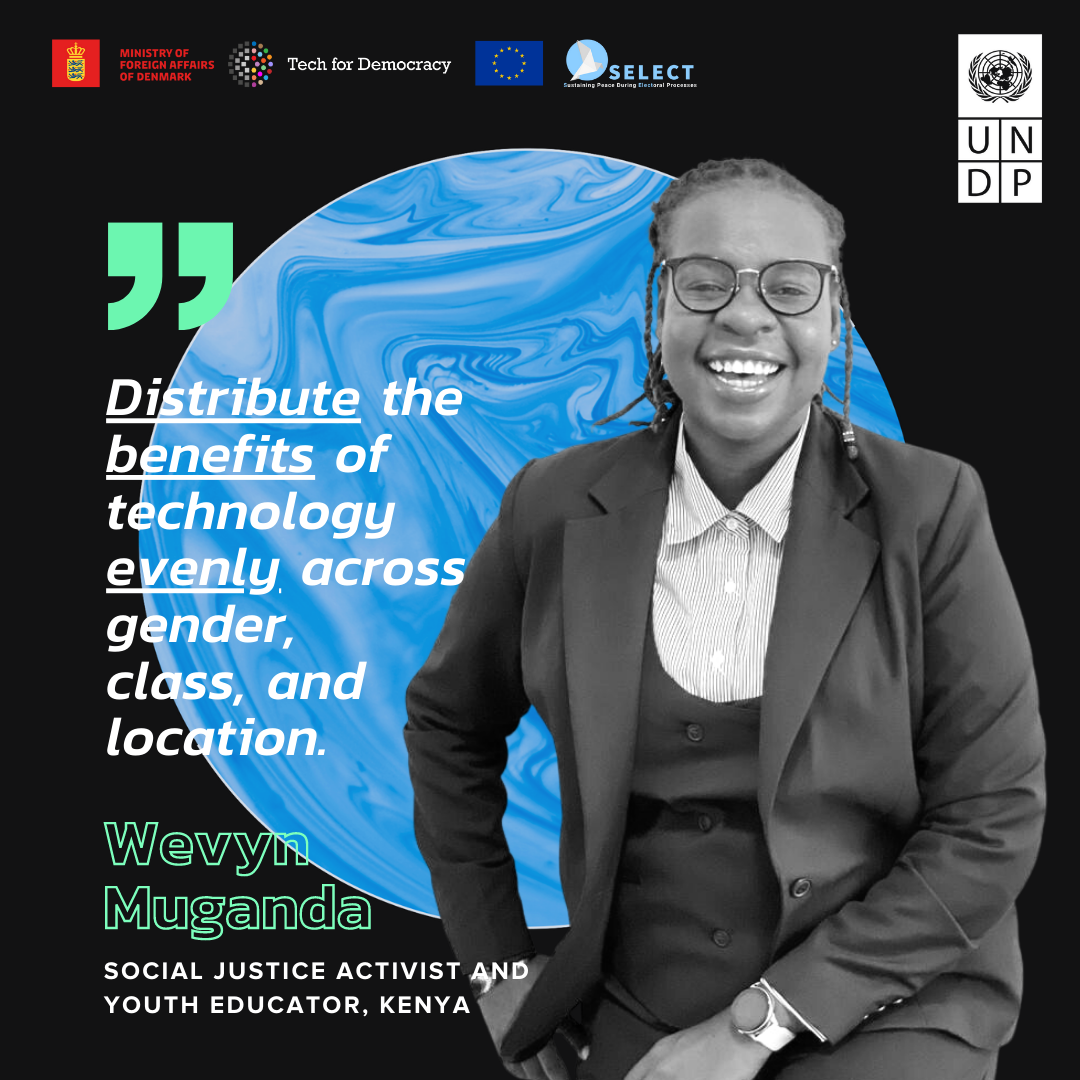Ensuring that benefits of digital technologies are evenly distributed across gender, class, and location with Wevyn Muganda.
“We need to ensure that the benefits of technology are evenly distributed across gender, class, and location”
Wevyn Muganda

Meet Wevyn, a social justice activist and youth educator working at the grassroots level to promote, amongst other things, online digital safe spaces in Kenya. She believes in the power of digital solutions to bring about inclusive peace and foster youth participation. That is, when they are genuinely inclusive, available to all and complemented by offline activism.
“Sometimes I need to be on the frontlines. I have gone out to the streets, but also sometimes I need to be behind my phone on Instagram, mobilizing young people to go out and vote, and other times I need to be in boardrooms or in coffee shops, negotiating peace with different partners...”
She spearheaded a number of initiatives in Kenya – ranging from online platforms educating on elections and legal reforms (Less Talk Kenya) to digital initiatives involving socially excluded youth to discuss human rights, peace and governance issues (Kauli Zetu Mtaani). This has resulted in the realization that there is a clear lack of Kenyan women in the technological space. As she highlights, digital opportunities are gendered and often do not consider the needs of women and gendered minorities. She notes that the misuse of technology is contributing to human rights violations in Kenya, particularly in relation to data privacy and data collection, which disproportionally impacts on women.
So, what is the solution, according to Wevyn? She points out that in order to ensure gender sensitive digital technologies that speak to the needs of young people, we need policy frameworks that protect people’s rights online. She also states that there is a need to invest in access, whether it be in the form of physical devices or upskilling youth in digital platforms with equitable opportunities for all segments of the population.
To policymakers working for and with youth specifically, she advises to focus on making technology work for young people worldwide, not just providing access but ensuring meaningful engagement that allows them to create content, develop skills, and benefit evenly across gender, class, and location. She cites low technology usage among African youth as an example of the need for change. To do so, content needs to be created focusing on engagement and upskilling the underprivileged youth of the Global South.
